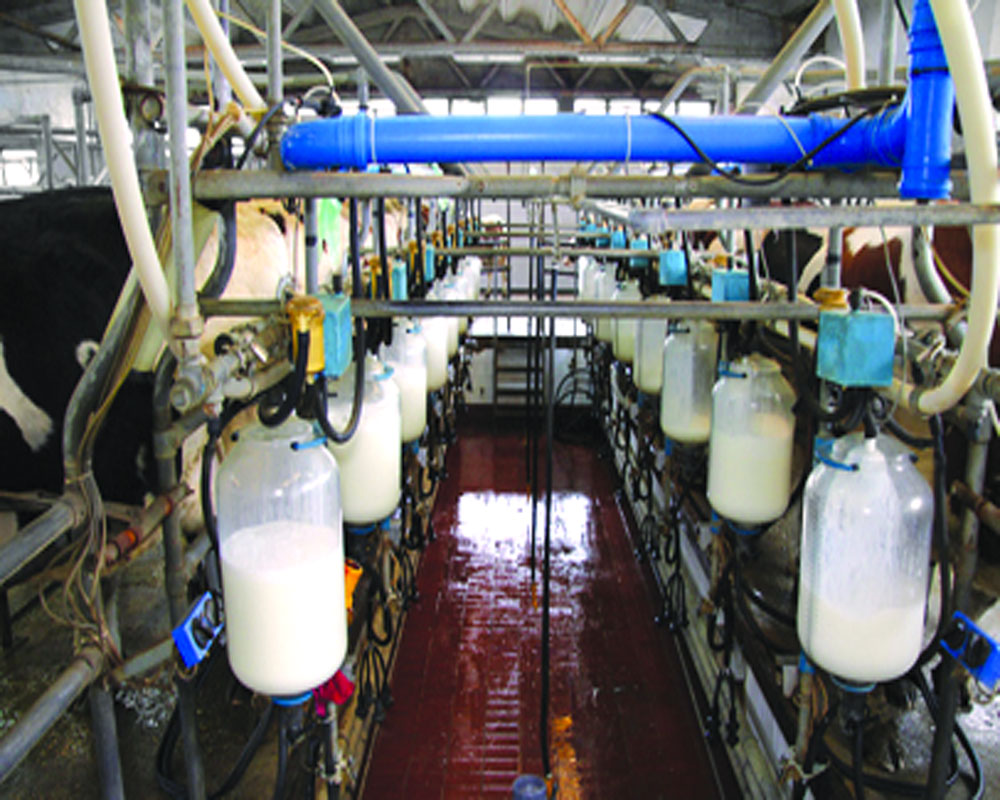Considering the high stakes involved, the tussle to control the cooperative sector has become the core of politics in Gujarat and Maharashtra
The recent decision of the BJP Government to constitute a new Ministry of Cooperation under the charge of Union Home Minister Amit Shah had mixed reactions. It was hailed by Government supporters as “the new entity which would help cooperatives across states progress as a true people-based movement reaching the grassrootsâ€. On the other hand, the opposition camp termed it as a “sinister move to highjack the cooperative movement for political gainsâ€.
After formation of the Ministry, the first ambitious move was to come out with a national framework for strengthening the cooperative movement in the country but the Supreme Court on July 20 said that cooperatives is a State subject and States have exclusive power to legislate on topics reserved for them. The SC upheld an eight-year-old Gujarat High Court verdict limiting the Centre's say in cooperative sector. This had put spanner in the path of the Government because if it wanted to create a “national frameworkâ€, permission had to be sought from 28 States which include opposition-ruled ones.
Now, the onus of finding a way out is on Amit Shah who is not new to the field of cooperatives who started his political journey as the Chairman of Ahmedabad Cooperative Bank and later helped in turning around the Madhepura Mercantile Cooperative Bank. By 2016, he helped in edging out the Congress from all 33 cooperative banks in Gujarat. The success of BJP in the politics of Gujarat passes through the route of dairy cooperatives. The dairies including Amul are a huge part of Gujarat's economy.
The opposition is apprehensive about the government's intention of exporting the “Gujarat model†of cooperatives to other states. This is apparent from the reaction of the former agriculture minister Sharad Pawar who conveyed his concern about the "formation of the cooperation ministry and the amendment to the Banking Regulation Act" and calling it an encroachment in federalism and powers of the state.
It is pertinent at this stage to understand the significance and structure of cooperatives in the Indian context. The dairy cooperatives were initiated by Sardar Vallabhbhai Patel as grassroots organizations to harness the power of collective bargaining for a common goal. Later, with the pooled resources of farmers and other workers, the cooperatives found their way into agriculture,sugar,textiles and other sectors.
The financial clout of cooperative sector can be gauged from the fact that at present, the biggest beneficiaries of state funds and subsidies are the cooperatives in the finance, sugar and dairy segments.
Considering the high stakes involved, the tussle to control the cooperative sector has become the core of politics in Gujarat and Maharashtra. With its strong network of around 225,000 cooperative bodies controlling sugar,dairy and finance, Maharashtra is the prime example. The Congress and NCP have controlled it for decades, and the BJP has been trying to break the monopoly. Incidentally, what the present Government is trying to do through the newly formed Ministry of Cooperation was opposed in 2013 by present Prime Minister and then Chief minister of Gujarat, Narendra Modi. He challenged certain provisions of the 97th constitutional amendment that empowered the Centre to design a framework for the cooperative sector. However, the way out of the impasse was crafted by the NDA-I government of Atal Bihar Vajpayee by passing a law in 2002 allowing multi-state cooperative societies (MSCS) to help cooperatives diversify and operate outside their home state.
Some experts in cooperative affairs find justification in the formation of a separate Ministry and the Reserve Bank of India monitoring on the grounds that in the absence of regulations, there have been allegations of scams in several cooperatives. Money was siphoned off to fund businesses of politicians, bureaucrats and cooperative leaders. The Rs 6,500 crore Punjab & Maharashtra Cooperative Bank scam in 2019 is a case in point. Acting swiftly, in September last year, the government amended the Banking Regulation Act, 1949 and gave the RBI powers to regulate operations of urban and multi-state cooperative banks. The RBI put a check on politicalisation of the cooperatives by debarring the elected politicians from holding full-time positions as CEOs and Directors. The initiative of forming a national cooperative framework finds favour with the experts who feel that it has the potential of creating more entreprenurial opportunities, get better value of their produce to the farmers and also reduce the exploitation of farmers by middlemen.
(The writer is a senior journalist and Chairman, Panwar Group of Institutions, Solan, Himachal Pradesh. The views expressed are personal.)


























